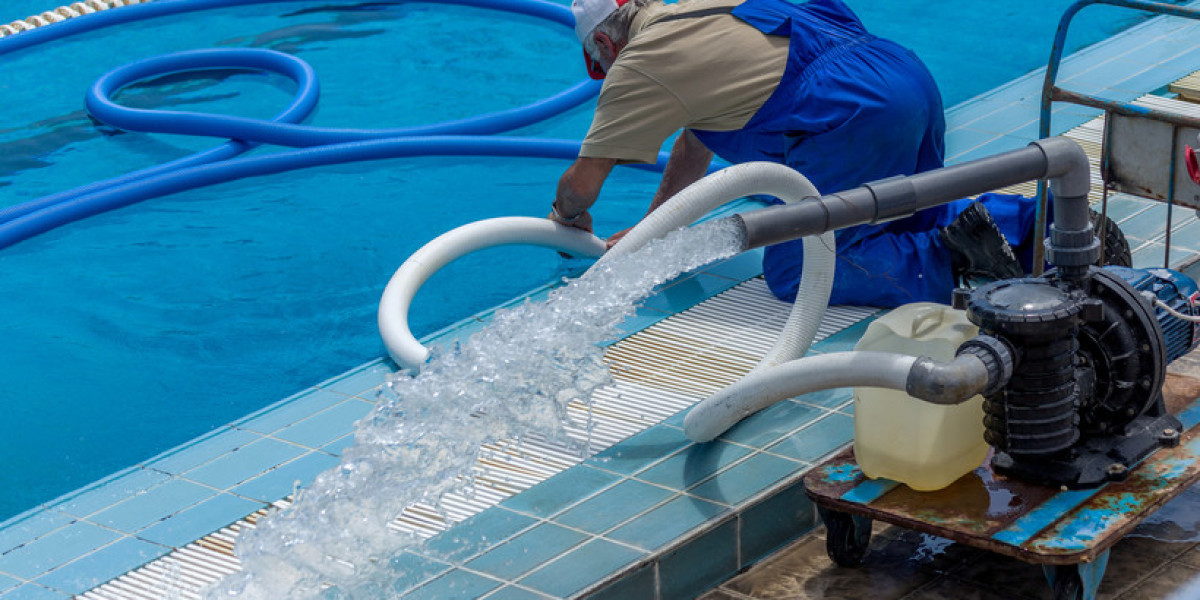Maintaining a swimming pool is crucial for ensuring its longevity, safety, and aesthetic appeal. Regular maintenance not only keeps the pool clean and inviting but also prevents costly repairs and potential Swimming Pool Maintenance health hazards. Whether you have an above-ground or in-ground pool, a well-maintained pool provides a safe and enjoyable environment for swimming and recreation.
Key Aspects of Swimming Pool Maintenance
Water Quality and Chemistry
Testing Water: Regularly test the pool water to ensure proper chemical balance. Use a pool test kit or test strips to check the levels of pH, chlorine, alkalinity, and other chemicals.
Adjusting Chemicals: Based on test results, adjust the chemical levels as needed. For example:
pH Levels: Maintain a pH level between 7.2 and 7.8 to ensure water is neither too acidic nor too alkaline.
Chlorine Levels: Keep free chlorine levels between 1.0 and 3.0 ppm (parts per million) to effectively kill bacteria and prevent algae growth.
Alkalinity: Maintain total alkalinity between 80 and 120 ppm to stabilize pH levels.
Filtration System
Cleaning the Filter: Regularly clean or backwash the pool filter to remove debris and ensure proper filtration. Follow the manufacturer’s instructions for maintenance and replacement.
Checking Pump: Ensure that the pool pump is operating efficiently. Check for any unusual noises or leaks and perform regular inspections.
Skimming and Vacuuming
Skimming: Use a skimmer net to remove leaves, insects, and other debris from the surface of the water. This should be done daily or as needed.
Vacuuming: Use a pool vacuum to clean the pool floor and walls. Regular vacuuming helps prevent the buildup of dirt and algae. Automatic pool cleaners can also be used for convenience.
Brushing
Pool Walls and Floor: Brush the pool walls, floor, and steps to remove algae, dirt, and other buildup. This helps to prevent staining and keeps the pool looking clean. Use a pool brush with a long handle for easy access to all areas.
Water Level
Monitoring Water Levels: Check the water level regularly to ensure it is at the appropriate height. Water levels can drop due to evaporation or splashing. Add water as needed to maintain the correct level, usually about halfway up the skimmer.
Cleaning the Pool Deck
Sweeping and Washing: Regularly sweep and wash the pool deck to remove dirt, leaves, and debris. This helps maintain a clean and safe environment around the pool.
Checking for Leaks
Visual Inspections: Regularly inspect the pool and surrounding area for signs of leaks, such as wet spots or low water levels. Address any leaks promptly to prevent water loss and potential damage.
Seasonal Maintenance
Winterizing: In colder climates, prepare the pool for winter by removing all pool equipment, adding winterizing chemicals, and covering the pool with a winter cover.
Opening: When reopening the pool in the spring, clean the pool thoroughly, check and adjust water chemistry, and inspect the equipment.
Pool Maintenance Checklist
Daily:
Skim the pool surface.
Check water levels and add water if necessary.
Weekly:
Test water chemistry and adjust chemicals as needed.
Clean the skimmer and pump baskets.
Brush the pool walls and floor.
Vacuum the pool.
Monthly:
Check and clean the pool filter.
Inspect the pool equipment for any signs of wear or damage.
Test and adjust total alkalinity and calcium hardness.
Seasonal:
Winterize the pool or prepare it for the swimming season.
Perform a thorough inspection and maintenance of all pool equipment.
Professional Pool Maintenance Services
For those who prefer to leave pool maintenance to the experts, professional pool maintenance services offer comprehensive care. These services can include:
Regular Cleaning: Scheduled visits for skimming, vacuuming, and brushing.
Chemical Balancing: Testing and adjusting water chemistry.
Equipment Maintenance: Inspecting and repairing pool equipment.
Seasonal Services: Winterization and opening services.
Conclusion
Proper swimming pool maintenance is essential for ensuring that your pool remains clean, safe, and enjoyable. By following a regular maintenance routine and addressing issues promptly, you can extend the life of your pool, improve water quality, and enhance your swimming experience. Whether you choose to handle maintenance yourself or hire a professional, investing time and effort into maintaining your pool will pay off in long-term satisfaction and reduced repair costs.








